#avatar yun
Explore tagged Tumblr posts
Text
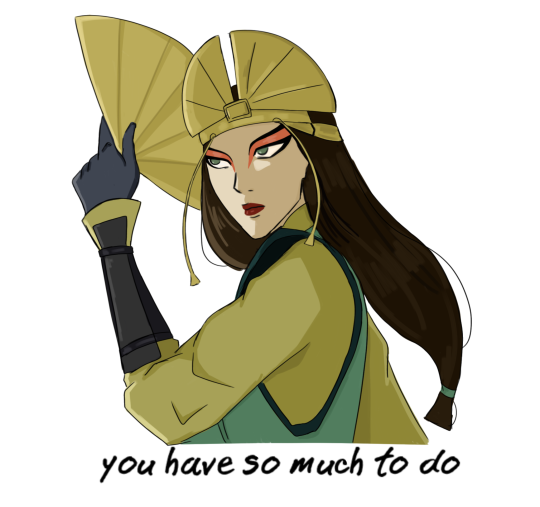

:')
#yun deserved soo much better😭#why didn't juanzhu save him whyyyy😭😭😭😭#avatar kyoshi#avatar yun#the rise of kyoshi#the shadow of kyoshi#kyoshi x yun#my art
213 notes
·
View notes
Text
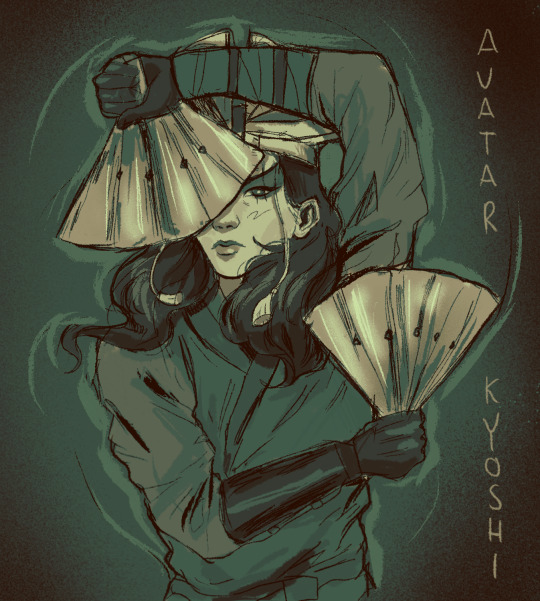

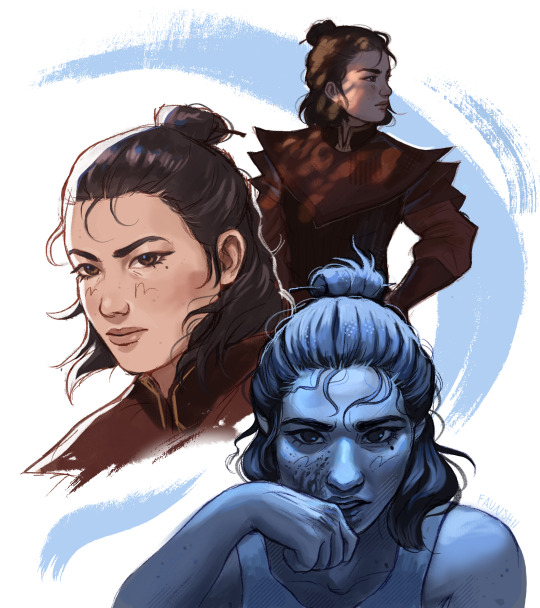
has anyone read the kyoshi books :33
#kyoshi#avatar kyoshi#atla#avatar the last airbender#atla fanart#kyoshi fanart#avatar aang#rangi#kyoshi rangi#kyoshi x rangi#rangi x kyoshi#rangshi#rise of kyoshi#shadow of kyoshi#the rise of kyoshi#the shadow of kyoshi#wlw#rangi fanart#yun#avatar yun#artists on tumblr#artwork#digital art#fanart#illustration#procreate
3K notes
·
View notes
Text

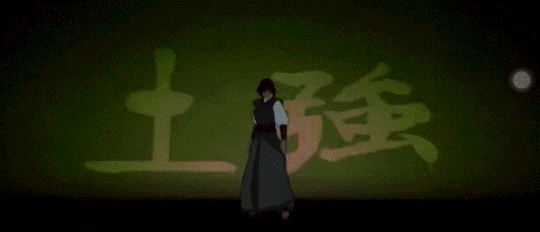
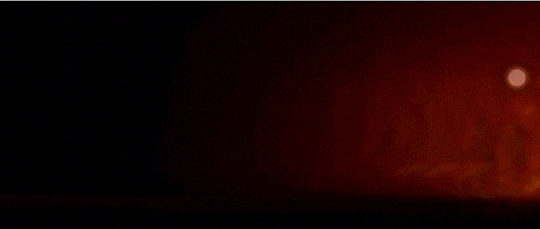

Avatar Kyoshi’s, Rangi’s, and Yun’s Finishers in Avatar Generations!!
#i’m YELLING#excuse the !!! because i cannot hide my excitement at all#these are so cool#avatar kyoshi#rangi sei’naka#kyoshi#rangshi#avatar generations#avatar yun#avatar the last airbender#mine#rangi
966 notes
·
View notes
Text
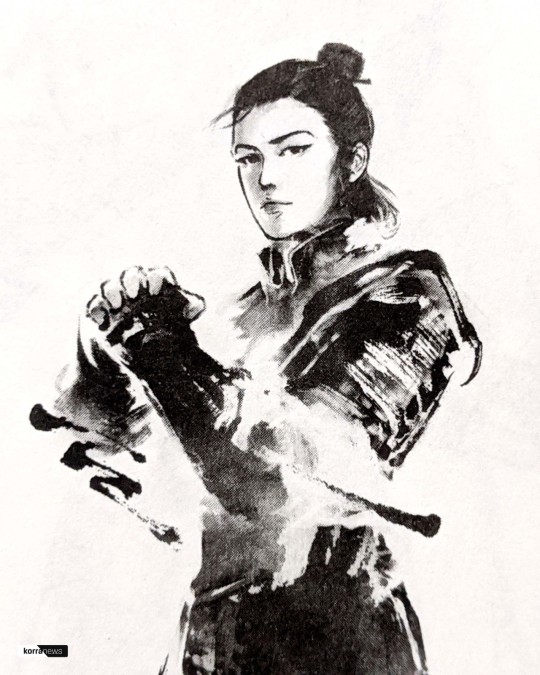
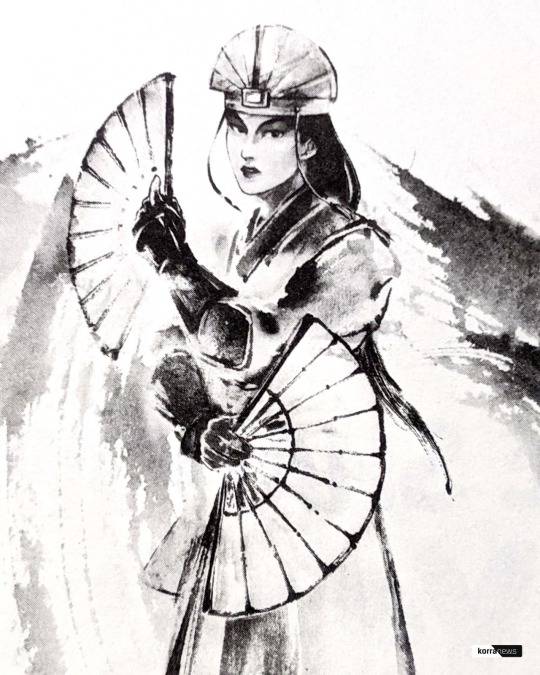
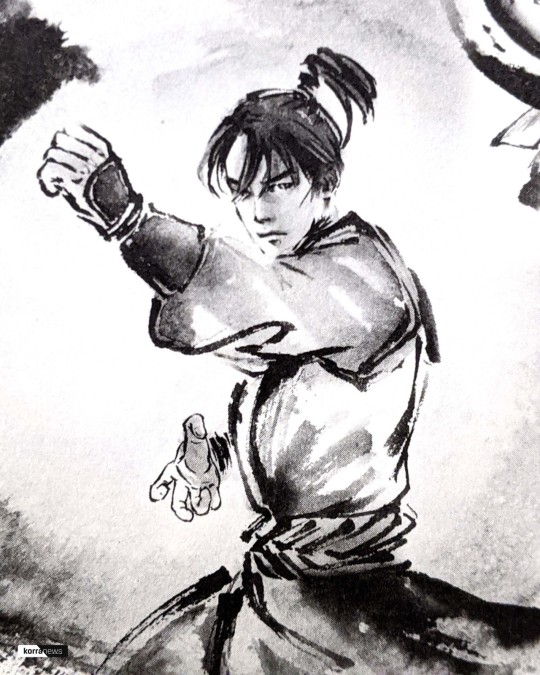
KYOSHI ERA WEEK 2024: PROMPTS
To commemorate The Rise of Kyoshi's 5th anniversary on July 16th, the Kyoshi Era Week 2024 will happen from July 14th to July 21st! Please, save the date and check the prompts below to start planning!
-------------------------------------------------------
Sunday 14th - Team Avatar || Found Family || Daofei
Monday 15th - Parental Figures || Protectiveness || Possessiveness
Tuesday 16th - Yokoya || Fire Lilies || "Damned if you do, damned if you don't"
Wednesday 17th - Growing Old Together || Spirit World || "Distance makes the heart grow fonder"
Thursday 18th - Hair Brushing || "Blood is thicker than water" || "Do as I say, not as I do"
Friday 19th - Avatar State || Companion Animals || "Touch her* and I'll kill you"
Saturday 20th - Recovery || Healing || Jealousy
Sunday 21st - Gay Panic || Touch Starved || Flirtation
-------------------------------------------------------
*Feel free to change this to any other pronoun.
The prompts are supposed to inspire you, not to restrict you. So, do as you wish with them!
Thank you to everyone who voted and/or reblogged the prompt polls! We hope you enjoy the event!
Do you want to be a mod? Do you need a tw/cw tag? Do you want to join the Discord server? Please send us an ask and we'll answer privately.
Click here to check the event rules!
#KyoshiEra24#avatar: the last airbender#avatar the last airbender#the legend of korra#the rise of kyoshi#the shadow of kyoshi#kyoshi novels#chronicles of the avatar#atla#tlok#trok#tsok#avatar#avatar kyoshi#kyoshi#avatar yun#yun#avatar kuruk#kuruk#atla event#atla prompt#atla fanfiction#atla fanfic#atla fic#atla fanart#atla art#atla drawing#fic prompt#art prompt#prompt
293 notes
·
View notes
Text
Someone: so Rangi, if both Yun and Kyoshi were in danger and you could only save one, who would it be?
Rangi, laughing nervously: I mean, I would OBVIOUSLY save the avatar! Yun’s whole purpose is to bring balance to our world! I am honor bound to protect the avatar! Kyoshi understands, of course
*the next day*
Rangi, strolling with Yun and Kyoshi: right, so it’s best that we-
Random child: *accidentally kicks a ball in their direction*
Rangi: *immediately grabs Kyoshi’s head and forces her to duck so that she won’t get hit*
Yun, getting smacked in the face from the ball: OW! DAMN IT THAT REALLY HURT
Kyoshi: *laughing so hard she starts tearing up*
Rangi, internally: *oooooooh this may be a problem in the future*
#rangi x kyoshi#kyoshi x rangi#the shadow of kyoshi#kyoshi#shadow of kyoshi#kyoshi novels#rise of kyoshi#the rise of kyoshi#rangi avatar#rangi sei'naka#rangi#avatar yun
187 notes
·
View notes
Text
“earth is my element, i just let other people borrow it sometimes.” -yun


i couldn’t choose between the darker version and the lighter one so have both‼️ i imagine this would be right after his fight with glowworm (hence the green tinge and highlights). *click for better quality!!!*
#my art#different to my usual style but i kinda like???#avatar yun#kyoshi novels#yun fanart#atla fanart#<yun3
16 notes
·
View notes
Text
This is what I don't get. How are Jianzhu and Hei-Ran so incompetent? Hadn't they tested Yun EARLIER???
They did, right? They KNEW he wasn't the Avatar. They were lying those two years. Either that or they are so stupid.
I love both options. Maybe they are stupid liars?
#jianzhu#hei ran#hei-ran#hei-ran sei'naka#hei ran sei'naka#yun#avatar yun#kyoshi#avatar kyoshi#kyoshi novels#the rise of kyoshi#slowest reread ever#this is one of my evil hei-ran hcs lol
124 notes
·
View notes
Text

On the way learning after effect but seem my laptop can't hold this much thing
#the rise of kyoshi#the shadow of kyoshi#father glowworm#avatar yun#trok#tsok#sok#rok#atla#avatar verse#avatar generation#avatar the last airbender#kyoshi era
63 notes
·
View notes
Photo

yun, the boy from makapu
47 notes
·
View notes
Text
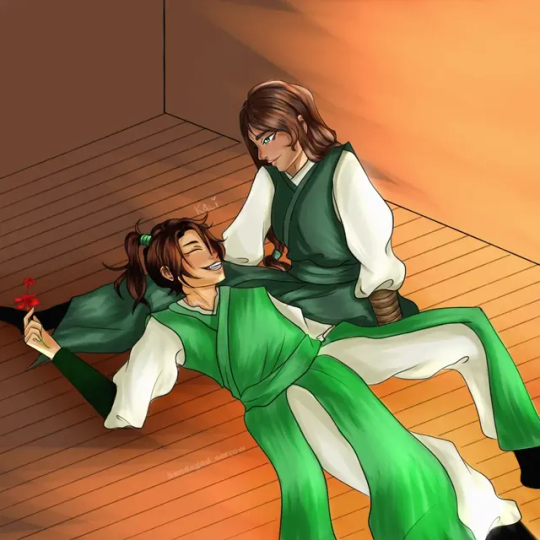
“Kyoshi, trust me when I say this: If it turns out not to be me, I'll be glad it's you.”
I just finished reading the first novel so I wanted an excuse to draw Yun before I surrender myself completely to drawing Rangi non-stop ✌
#art#avatar#kyoshi#yun#avatar yun#avatar kyoshi#digital art#kyoshi art#avatar fanart#fanart#the rise of kyoshi#avatar the last airbender#avatar: the last airbender#kyoshi novels
87 notes
·
View notes
Text
shakespeare knew he couldn’t write a tragedy as heartbreaking as the story of avatar yun so he quit while he was ahead
65 notes
·
View notes
Text
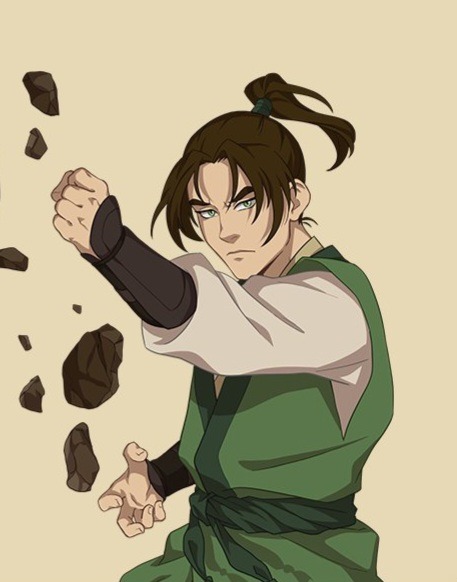
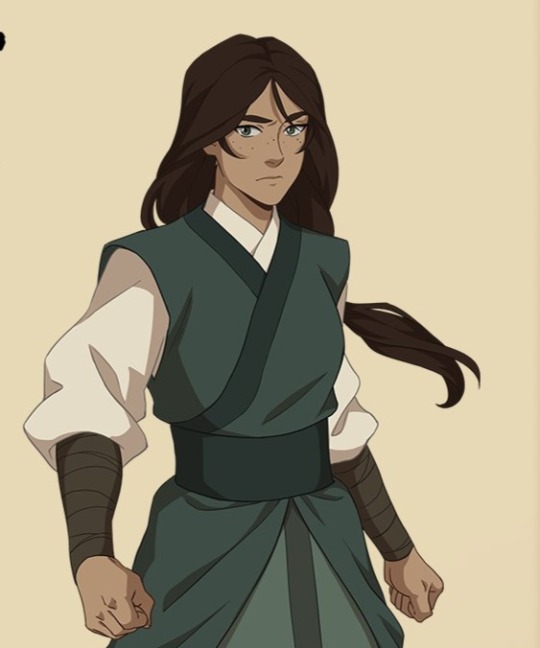
Nobody's son Nobody's daughter
#:(((#they deserved better#avatar kyoshi#avatar yun#the rise of kyoshi#the shadow of kyoshi#kyoshi x yun#asoolapost
184 notes
·
View notes
Text
hey im so fucking torn please help me.
#the 2nd option IS a genre. iykyk#this is vague but like. I cant decide which direction I should take his design I have so many references..#Avatar Yun#<- I hate that this is the best way to tag him it's so funny. and mean.#allgremlinpolls
309 notes
·
View notes
Text

How to write the perfect revenge story with Kohaku-Sensei! What Tsukihime does better than Avatar the Last Airbender.
So a follower asked me why Kohaku was my favorite of the Tsukhime girls after I made an offhand comment on my Ciel/Noel post on how Kohaku is the perfect take on revenge. Both Noel and Kohaku's story arcs are near perfect revenge tragedies that make their characters the standouts in Tsukihime. I tried writing up just why I thought Kohaku's character was good but it kept turning into a carbon copy of this post by comun right here. Eventually I decided to dig deeper.
Why does Kohaku's revenge story work so well? Why does every other revenge story suck so hard in comparison? See the thing is I hate a lot of revenge stories in fiction because they are very shallow, black and white tales of the good guy giving the bad guy everything he deserves.
In other words, I'm disappointed by most omdern revenge stories because they display a critical lack of understanding of how cycles of abuse start in the first place, and how both sides on the conflict no matter what are equally human. Perhaps that's why Kinoko Nasu writes revenge so well, because he's a deeply humanist author who's not really focused on good guys or bad guys but rather just understanding the characters involved.
So to show just how well Tsukihime humanizes Kohaku as both victim and villain of the story, I'm going to compare it to one of the worst revenge stories I've read in fiction. Both of these stories are tragedies that kill their main character, a victim who just wanted revenge for the long abuses they'd suffered in life. However, one of these is Tsukihime, and the other one sucks. So without further ado under the cut.
ORESTES THE FIRST REVENGE STORY
So Yun is a character from a spinoff novel prequel of Avatar the Last Aribender, focusing on the life of Avatar Kyoshi. In a lot of ways Yun is like Noel. He's a completely new character, thrown into the backstory of an already established character. He also steals the show because he's allowed to be a lot more flawed and act as a villainous foil to the main character, Yun even acts as a Jungian shadow the second novel is literally called the shadow of Kyoshi.
However, there's one major difference Noel's character greatly enhances Ciel's even if she is fridged for Ciel's character development. Whereas Yun's character and the eventual ending the story gave him ruined any kind of enjoyment I could have had from the story for Kyoshi's character. In fact, I think Yun's death made the whole story fall apart thematically.
Which is ironic because it was the exact same ending. Noel's character ends with her dying by Ciel's hands. Kyoshi kills Yun with her own two hands in order to stop his revenge. In both stories the victim dies so why does one frustrate me to no end and the other ending elevates Tsukihime to one of my favorite pieces of fiction?
The devil is in the details.
Revenge stories are by their nature tragedies. It makes sense for them to, for the most part with a few hopeful exceptions have bad endings. Taking personal revenge against every single person who's hurt you grievously no matter how deserved that revenge might be does not solve the problem. In fact it creates several new problems.
This is pretty well explored tragedy in fiction, all the way back to The Oresteia. Orestes is the son of Agamemnon and Clytemnestra. If you know anything about the trojan war you should recognize those names.
The story begins like this, King Agamemnon of Mycenae offends the goddess Artemis by killing one of her stags. So, in retaliation she prevents the greek troops from reaching troy by taking the wind out of their sails, unless Agamemmnon kills his oldest daughter Iphigenia. Agammemnon drags his daughter away from his wife Clytemnestra who was crying and begging him not to and offers her as human sacrifice. Ten years later when Agamemnon returns home he finds his wife sleeping with another man, and the two of them together butcher him to avenge iphigenia.
Then in order to avenge her father's death, elektra urges her brother Orestes to kill their mother and the man she committed adultery with. Orestes eventually goes through with it out of duty to his father, but because he's committed the clan of kin slaying the gods send the furies after him to chase him down and torment him.
The revenge just continues to cycle. Orestes doesn't right a wrong by avenging his father's murderer, he just commits kin slaying a taboo among the gods. Even though he felt he had an obligation too because he couldn't let his father's murderer live, the gods don't let him live in peace. Orestes would have been chased by the Furies for the rest of his life if Athena didn't intervene and basically hold the first court case in order to rule if it was really just to punish Orestes like this.
The point of my long foray into greek mythology is that no matter how entitled each person in the revenge cycle might have felt to their revenge, in the end they were committing a horrible act. Clytemnestra was avenging her daughter against the man who killed him, but she alienated her other two children. Orestes was duty bound to avenge his father, but he still killed his own mother with his two hands. At each link in the chain there's no real innocent parties, and the moment you take revenge you become a perpetrator in this cycle of abuse as well.
That is I think a central concept that the greeks understood but many modern authors fail to grasp, that revenge is a cycle during which any time a person can become a victim of it, and also a perpetrator of it. It's not a matter of internal goodness or badness but rather an uncontrollable cycle of violence that people get caught up in.
What revenge stories should be about is escaping the cycle. When the character manages to escape like Orestes and live for something other than revenge that's a happy ending, but when the character fails to escape that's a tragedy. Whether or not a character actually accomplishes their revenge is a footnote.
The Count of Monte Cristo accomplishes most of his revenge but the act of revenge isn't what saves him, but rather the faithful love of Haydee who had always been by his side and the words "wait and hope." The Count isn't saved by the revenge he took on all the people who hurt him, but by the strength he had to wait through a terrible situation until it got better and then live on to the better future. Carrie accomplishes her revenge in burning down the school gymnasium and all of her bullies, then goes home and dies a few minutes after killing her mom the last of her abusers unable to escape the cycle.
While their endings are opposites, in both cases completing their revenge didn't give them any measure of peace at all. In fact, the Count almost in the course of his revenge committed a sin far worse than anyone had done to him by killing a newborn infant. No, any good revenge story should know that in the words of percy from Critical Role you can't murder your way to peace.
"There was nothing I could’ve done to save my family, yet I still sold my soul in search of vengeance. Later I allowed Ripley to leave, knowing full well she was a greater threat to the world than the Briarwoods would ever be. I traded the world’s safety for the belief that I could murder my way to peace; that if I could be a greater horror, it would bring my family back. And once this lie was shattered I scrambled to find a solution, to make a deal, to undo my mistakes and balance the scales. I now understand that there are no scales, there is no redemption, and no ledger that judges me good or evil. I am free to simply be myself and live with the terrible mistakes I’ve made." -Percy's Death Letter, Critical Role
In most revenge stories I've noticed that revenge is the main character motivator for the character taking revenge. Therefore the conflict becomes whether or not they can find something new to live for by the end of the story. The characters seeking revenge often make that revenge their entire reason for living, but then what next?
This quote from Oldboy a modern adaptation of the Count of Monte Cristo is relevant.
Seeking revenge is the best cure for someone who got hurt Try it The loss of 15 years the pain of losing your wife and child you can forget all this Once again revenge is good for your health But... What happens after you've revenged yourself?
What happens after you've revenged yourself should be the central question to these revenge arcs. The ones who don't have an answer to that question and are unable to free themselves from the cycle are the ones who end in tragedy.
YUN VS KOHAKU

Yun and Kohaku are characters from a western animated series that adopts eastern themes and a Japanese visual novel about vampires. These two characters come from very different genres of stories, an adventure story about magical warriors using martial arts to bend the elements and a horror story about vampires and serial killers respectively.
However, because both Yun and Kohaku are the central figures of a revenge tragedy they end up having a lot in common. The largest common thread between them is that both of them is that they are child abuse victims, specifically the victims of long term grooming.
They are children who were adopted and then groomed by their father figure for years. In Kohaku's case, it was sexual grooming, whereas in Yun's case it was grooming him into a child soldier. The official definition of child grooming works for both of these cases, it is when an adult forms a relationship with a child to sexually assault them or induce them into doing something dangerous or harmful to them.
Kohaku and Yun are more obscure characters though so for the sake of people who haven't read one or both of these series I'm going to go more into depth on their individual circumstances.
Kohaku is an empath, born with the ability to transfer energy to other people through sexual intercourse. She and her sister were brought into the Tohno Clan, because Makihisa Tohno the elder had demon blood in his veins. This demon blood made him at risk of going through a process called inversion, where he would slowly lose all his mind, all reason, and violently attack everyone around him until he was finally put down. In order to mitigate that risk, Makishisa engaged in regular sexual intercourse with a young Kohaku and made use of her abilities as an empath to control his demon side.
As the elder of twin sisters Kohaku made a deal with Makihisa that she'd let him use her whenever she needed as long as he never touched her sister. Since he kept his word to her, she found it hard to resent him in the long term. Also, because she was constantly high on drugs that made it impossible for her to feel pain.
"So, I took in everything Makihisa-sama wanted to do. I asked him not to touch Hisui-chan because I would take everything myself. He was probably ashamed and agreed to my request. He probably also thought it was better that as few people knew about this secret as possible."
Kohaku is eventually sent to take care of Makihisa's son who also inverted, but when he loses control and rapes her too that's when she loses her last bit of humanity and starts to think of revenge.
At this point she starts to think of herself as an unthinking doll who cannot move for herself, and can only move for revenge. She eventually starts to move against Makishia, first by informing Akiha and Hisui of the abuse she's suffered. She's surprised when Akiha immediately protests what he farther was doing right away, and the sexual liason ends and Kohaku becomes a normal servant. However, even after the abuse ends Kohaku decides to continue living for revenge leading to the main plot of the Far Side of Tsukihime.
Yun is the false avatar. If you've heard of Avatar then I'm sure you at least vaguely know of the concept of the avatar, spiritual guide in the world of avatar that reincarnates over and over again to guide both humanity and the spirits.
In the avatar prequel novels it's established each nation has its own way of tracking down the avatar, but because Kuruk died early and under mysterious circumstances the earth nation was in a panic to find the next avatar. Instead of waiting for more sure confirmation, they picked one random kid on the side of the road on what was basically a hunch that he was Kuruk's reincarnation. This kid was named Yun, a nameless but smart kid with no parents who was conning people by playing Pai Sho really really well. While all along the next avatar Kyoshi was right next to them as one of Yun's servants.
Yun is trained as the avatar through years, and is put through the kind of training that only the Zoldyck family from Hunter x Hunter would approve in. Including being forced to walk on spiked caltrops to learn bending, and being forced to microdose on poison to gain an immunity. Like, this is literally what Killua's parents did to him in HXH.
"I'm surprised you can move," Jianzhu said to him, more impressed than anything else. "Poison training," Yun spat through clenched jaws. "With Sifu Amak, remember? Or did you forget every darker exercise you put me through?"
Yun is a genius earth bender, a brilliant statesman, he works all around the clock to become the avatar everyone is telling him he's destined to be but he's not physically capable of bending any element other than earth. To the point where after a year of failing to learn fire, his bending teachers frequently lambast him as being lazy and not trying hard enough.
"Your situation isn't unique" Hei-Ran went on. "History is full of Avatars like you who tried to coast on their talents. You're not the only one who wanted to take it easy." Yun slipped. An event rare enough to notice. His motion took him too far outside his center of gravity, and he stumbled on his knees. Sweat stung his eyes, ran into the corner of his mouth. Take it easy? Take it easy? Was she ignoring the fact he spent sleepless nights poring over scholarly analyses of Yanghcen's political decisions? That he'd extensively memorized the names of every Earth Kingdom noble, Fire Nation commander, and Water Tribe Chieftan back three generations on the living and the dead? The forgotten texts he'd used to map the ancient sacred sites of the Air Nomads to such a degree that Kelsang was surprised about a few of them? That's who he was when no one was looking. Someone who dedicated his whole being to his Avatarhood. Yun wanted to make up for the lost time he'd squandered by being discovered so late. He wanted to express gratitude to Jianzhu and the entire world for giving him the greatest gift in existence. Taking it easy was the last thing on his mind. [Literally a few seconds later...] "In the old days, masters used to maim their students for insubordination," she said horsely. Yun restrained himself from flinching, "What wonderful modern times we live in."
So Yun is physically and emotionally abused by all of his teachers, Jianzhu, Hei-Ran and several other adults who were complicit with it to train him up into being the avatar. Then, when it turns out Yun isn't the avatar, he's immediately abandoned and left for dead.
Yun gets dragged into the spirit world as a human sacrifice to a horrifying spirit known as Father Glow Worm. He is abandoned by his master who makes no attempt to save him the moment he learned that he wasn't the avatar. Then, in the spirit world he fights Father Glow Worm for days and eventually has to eat him in order to escape home.
After getting to a random village he asks for water. Yun is mocked by a man he saved earlier fo rasking for a single glass of water. When the man throws the water on the ground and tells him to water bend it, Yun snaps and then kills the man who mocked him, the city guard, and everyone who was sitting in the teashouse and has his Geto moment. He decides to start living for revenge against all of the teachers who abused him.
"Well," he said out loud to no one. "It looks like I've been fired." Perhaps it was for the best. He would need the free time, because he had a losit of things to do. lots of personal business to take care of. And at the top of the list was paying his respects to Jianzhu. Filled with new purpose, Yun took off down the road, whistling as he went.
Both of these characters decide to make revenge their reason for living. To quote Oldboy, "Seeking revenge is the best cure for someone who got hurt. Try it." They also face the same fundamental issue, now that they're only living for revenge then what happens after they've revenged themselves?
These characters are also similar in a couple of other ways. They are schemers who mainly work through manipulating others. Yun fakes a political conflict between the fire nation royal family and another noble family in order to bring one of his abusers into the crossfire. Kohaku manipulates both SHIKI and Shiki through the use of drugs to orchestrate her revenge in the Far Side Routes.
They're also both trickster characters. Yun refers to himself as a clown and constantly hides everything behind a smile. "He added that smirk that everyone said reminded them of Kuruk's. After all, a clown needed his makeup." A major part of Kohaku's character is that after Hisui learned about how her sister was being abused she stopped smiling. Kohaku wanting her sister to be happy, started to fake a smile and goof around the way Hisui used to because she wants to see her sister smile again.
One more similarity before I begin dissecting their differences and the way these two characters are handled is that if Kohaku and Yun were the main characters of the story their revenge would undoubtably be framed as one hundred percent justified. If they were the main characters it would definitely be a kill bill situation.
I don't think they are justified, because straightforward revenge is boring. The fact that they are antagonists is the point of each story. I'm just making an underlying point on how a lot of revenge stories suffer from protagonist centered morality. It's alright if Maki Zen'in, or The Bride kills upwards of a hundred people in retaliation for the harm that was done to them and we're supposed to root for them without thinking too deeply on it because they're the protagonists of the story. Protagonist centered morality is bad, because it makes things too centered on the protagonist and therefore if the morality of a piece of based on the protagonist it will make things too easy and the protagonist will go unchallenged.
In fact, in the story of Tsukihime itself, the entire Tohno family thinks that Kohaku 100% has the right to take revenge against them. Akiha is fully aware of Kohaku's revenge scheme. She lets Kohaku get away with her revenge every step of the way, including taking what is essentially a bullet on purpose and dying for Kohaku's revenge scheme because she believes her family deserves it.
However, because they are not the protagonists they don't get the easy route of taking their revenge against the people who deserve it and then riding off into the sunset happily. No, Kohaku practically gets her revenge handed to her on a silver platter and still revenge doesn't fix anything.
Once again, revenge is good for your health, but...
WHAT HAPPENS AFTER YOU'VE REVENGED YOURSELF?
Yun and Kohaku are both characters who either lost everything, or had no reason to live to begin with and decided to make revenge a reason for living. Both of them were unable to keep living for revenge because revenge is unsustainable. It's not something you do once and you're done, it's a cycle. The act of participating in it continues to perpetuate the cycle. As a result both of them met their tragic end.
However, Kohaku's tragedy surpassed Count of Monte Cristo for my favorite revenge story in all of fiction, whereas Yun's ending made me want to rip his book in half.
There are some differences in how their revenge stories play out. Kohaku is a very unique character. In spite of being an emotionless doll, she takes her revenge not out of anger or hate but empathy. I can't word it better than Comun so I'll just quote their post:
Hisui route ends with the reveal that Kohaku masterminded the demise of the Toono family and her motives are pretty obvious but I never expect the way she felt about it. Kohaku describes herself as not as a human, but as Makihisa’s emotionless doll. Kohaku had to constantly intake pain-removing drugs in order to endure Makihisa’s (and latter SHIKI’s) abuse and this state of not feeling anything disconnected her from her emotions. Kohaku admits that, to some extent, she did all of this because it made her feel human a little. What you would expect from this premise? Kohaku channelling her remnants of humanity into hatred for the Toono family and orchestrating her revenge. Was that what really was on her mind? Nope, Kohaku (and Kinoko himself, as Fate/Grand Order is a great evidence of) has a much more positive definition of what it means to be human. Kohaku expresses her humanity through fairness, empathy and a desire to make the situation better. Even though, Makihisa singlehandedly completely ruined her life, she acknowledges that he didn’t do it out of sadism or perversion, he did because he really had no other choice in order to keep himself from inverting and causing even bigger harm to everyone. Kohaku sees Makihisa as much of a victim of this tragedy as herself.
Kohaku's revenge actually takes a twisted form of empathy. Kohaku doesn't have the standard revenge motivation of just wanting to hurt the people who hurt her, because she can objectively see the points of view of almost everyone involved in the tragedy.
It's a bit like Orestes where there's no true beginning or end point. Makihisa is a sick pervert and the instigator, but he also didn't choose to be born with demon blood that made him liable to turn insane at any moment. SHIKI is kind of helpless in all of this, as another person with demon blood he couldn't help inverting at nine years old and going completely insane, he's not really in control of his actions. Hisui is an innocent, and while Akiha is a part of the same family the moment she learned what Kohaku was suffering she stood up for Kohaku and made it stop.

"But, there wasn't anything else I could do. Without a purpose like that, I couldn't live. A doll cannot move on its own. Without anything to guide it, it can't move." "But still--" ...... That is unforgivable.
Comun frames Kohaku's motivations as genuinely believing the world would be better off without the Tohno bloodline, because it only has caused everyone involved with it suffering. Therefoer she makes a plan to kill every member of the family, except for Hisui and Shiki who are technically innocents, and then herself finally so Hisui can run off into the sunset together with Shiki who she'd always loved.
I'd also add that on top of empathy there's also a certain justice in her actions. Not justice in the sense that she has to hurt the people who hurt her, more like justice in the sense of fairness? Like, Kohaku isn't driven by personal hatred but rather a desire to make things fair and balance the scales. A family like the Tohno who cause misery to everyone shouldn't exist, because people shouldn't have mixed their blood with demons in the first place. There has to be a consequence to Makihisa's actions because you can't get away with child rape and the only one who could enforce it was her. The same way that Kohaku considers everyone's opinion equally and considers everyone equal victims in this twisted family cycle of revenge, Kohaku also acts to make things more fair.
To quote Percy again, it's like she's trying to balance the ledgers.
"And once this lie was shattered I scrambled to find a solution, to make a deal, to undo my mistakes and balance the scales. I now understand that there are no scales, there is no redemption, and no ledger that judges me good or evil."
Kohaku's also constructing a narrative around her pain. She needs a reason to keep living, and that reason is the narrative she's constructed, the story she told herself that she only half believes that everyone would be better off if everyone associated with the Tohnos, herself included, except for Hisui and Shiki died off.
Of course this is just a narrative. A lie she is telling herself to justify her actions. Because Kohaku acts out of fairness, and empathy, but she also acts for the sake of acting. She wants a reason to move, because otherwise she would just be a doll, passively enduring suffering. The story she tells herself is in the end a lie, like all stories are. Kohaku ignores the feelings of two people in her assumption that everyone would be better off without the Tohnos, that is her own personal feelings towards Akiha, and Hisui's feelings towards her. Kohaku understands that the reason Hisui can't smile any more is that she's too horrified at all the things her sister endured to protect her. However, she can't grasp that killing herself in front of Hisui would just make Hisui live with that guilt forever. That Hisui would rather be miserable with her sister alive than happy with her dead.
(From the good ending)
"Nee-san......? Nee-san, hold on......!!" A desperate cry. Seeing that, the girl smiles like a child. "...... Huh? ...... Don't do that, Hisui-chan. Crying like that, it feels...... like back then." "What---Nee-san, why----" "...... Yeah, because if I, don't do, so, you won't be, able to return, to the way, you were." Her words in pieces, and with glazed eyes, she speaks to Hisui. "---------Nee, san." Hisui's face contorts in grief. Her tears flood her face. "...... Why? That's fine. I was okay with the way I was. If you were happy, then I was happy. I---I was always protected by you, so---" I was always happy. Painfully, she swallows her last words.
Yun is in comparison less magnanimous towards his abusers. He wants more straightforward revenge against his teachers and all the people who "lied" to him by promoting him as the false avatar.
This is the biggest area where he differs from Kohaku. Rather than Kohaku, I'd say he's more like Geto, someone with a savior complex who genuinely put their all into being good because they believed they had the responsibility to save people, only to be then betrayed by those same people they were working so hard to save.
I do still think empathy is the central motivation for both characters. Kohaku commits revenge out of a twisted sense of empathy to see the perspectives of everyone involved and decides the only way to fix everything is to destroy it all and wipe the board clean and give the two innocents in the Tohno Household a fresh start.
Geto and Yun are both high empathy individuals whose empathy for other people twists them so much when they're confronted by human ugliness and selfishness, that they end up turning on the same people they wanted to save. They feel a bone deep empathy that twists them into monsters because they're not able to exist in an unfair or imperfect world that isn't the way they imagined it to be.
'...no matter what, I hate non-sorcerers. But it's not like I hate everyone at Jujutsu Tech. It's just...' It's just that it was what Geto had to do. In some ways, Geto and Yuuta were the same. Geto was too sincere. To someone like him, the reality that the world of sorcerers presented to him was just too cruel. '...that in a world like this, I couldn't be truly happy from the bottom of my heart.' To live for the purpose of being yourself. And for that goal, Geto could only continue to pursue his twisted dream, drowning himself in the curse that lies in the gap between ideal and reality. This was the final confession of a man who could only choose to warp himself, who had erased himself in pursuit of his goals. The only person who could bear such a curse was Gojo Satoru. JUJUTSU KAISEN ZERO LIGHT NOVEL
Geto is broken by the idea that all of his comrades and himself are considered expendable, and they're all meant to sacrifice themselves for an ignorant public. Yun is broken by the fact he broke his body and mind trying to be a great avatar because he wanted to help people, only to learn that it was all for nothing because he was discarded the moment it turned out he wasn't the avatar.
(Yun is more Morgan Coded but that's a different post).
It was too late. "I dedicated my life to people like you." Yun said. He couldn't tell if he was laughing, crying, croaking out beastial sounds of fury. "I wanted you to thrive. I wanted you to prosper. I tried so hard."
However, I'd say both of them Kohaku and Yun are driven by an underlying idea of fairness. They're not taking bloody violent revenge for personal gratitude, but because they can't cope with the unfairness of the world they're living in and are trying to find some ways to balance the scales.
Yun is so driven by fairness that he doesn't want to punish Kyoshi even though she technically stole the title of avatar from him. He considers her innocent of the whole thing, and even sympathizes with her and the struggles she carries right now as avatar.
"I can't believe you think I would ever hurt you." He gently tugged the closed fan out of her right hand. "You, the one innocent party in this whole affair! I would never hurt you, Kyoshi! For Yanghcen's sake, I used to be your whole life.!" He dropped the weapon and it pinged against the ground. "I know what's happening here. Your duties have gotten to you haven't they? I remember what it was like, carrying the weight of Four nations on my shoulders. Jianzhu used to liken them to unruly students in a classroom, requiring the guidance of a strong hand." He paused and chuckled, "I used to believe it meant showing the wya, leading my example. Now I know better. The world is a child refusing to listen, creaming in a tantrum. It needs to be slapped a few times until it learns to be quiet."
I think this is essentially the difference that makes one narrative and breaks the other. Nasu is fully aware of Kohaku's humanity even as she calls herself a doll. He goes to great length to demonstrate Kohaku's humanity in all the ways I pointed out above, by showing how much she sympathizes with others, by how she protected her sister, by how she's guided by principles.
More than anything, it sympathizes with Kohaku by making us as the reader understand that while she did bad things it was in retaliation to an even more horrible evil done to her. Also, that Kohaku only did these things because revenge was the only way she could think of to live, Kohaku was just a victim coping in the worst way imaginable. I think Nasu really nails down the hopelessness of someone who's clinging to revenge because they can't think of any other reason to live.
Whereas so much effort is put into Yun's backstory and detailing all of his suffering, only for him to be treated like a very standard villain. Like, honestly, Geto is a genocidal maniac and he's framed way more nicely by the story he's in than Yun. All Yun really wants to do is kill his abusers and that is apparently a sin too deep to continue living with.
Geto who does way worse things than Yun, and who is also killed by his former best friend is shown way more love and acceptance in his ending than Yun is.
This was the final confession of a man who could only choose to warp himself, who had erased himself in pursuit of his goals. The only person who could bear such a curse was Gojo Satoru. Where did it go wrong? And how could they start over again? The answer was left in their far-away, far-away youth. And even considering everything that had happened until now, it was clear that this story was about to end. But, there was one thing that was concrete. Even if everything was different now, there was still one thing that - from the very moment it all started - had never changed. Gojo knelt down, meeting Geto's eyes as he sat there. '...Suguru.' '...?' Geto Suguru. It was a named that the Jujutsu Tech organization feared: one of the four special grade sorcerers, who had killed over a hundred ordinary people, who had been named and exiled as the most evil curse use. But to Gojo Satoru, he was —— '————, ————' '...ha.' When he heard the words Gojo blurted out, Geto couldn't help but laugh. Such embarrassing (t/n: makes you self-conscious) words. Even why they were students, those words had never been said before. 'You should've at least cursed me a little before the end.'
In the actual manga of JJK too, Gojo tells a teenage ghost of Geto that if his adult self was there he was the only one who could have satisfied him. Gojo thinks about how he has to finally catch up to Geto after being left behind that day, when he moves on to kill the higher ups. Gojo's dream of protecting the youth came about because he never wanted someone to suffer alone like Geto did again.
Whereas, this is basically the only thing Yun gets told from his best friend and the hero of the story who is supposed to be the chosen spiritual guide of humanity chosen by the gods.
“It’s time to let go.” Kyoshi lowered her hands. “Whether you kill me here today or not, you have to let go of what happened.” “And it didn’t brting me peace. It was wrong that you were lied to, Yun. It was wrong for Jainzhu to do what he did, but he’s gone. Whatever pain and anger you have left - you have to live with it. You can’t put it on anyone else.”
Have you tried, uhhhhhh getting over it?
The "you have to live with it" is just particulary insensitive because as I went to great lengths to demonstate above, Yun was TRYING to live with it. Just like Kohaku, revenge was the only reason he could come up with to keep living.
It's fine if the heroes cannot find a way to reach out to save Yun in time and he dies because living for revenge is unsustainable. That's what happens to Kohaku, that's what happens to Geto. There's just a cruel lack of empathy in the way that Yun's death is framed. It's framed as a mercy killing, because Yun, a like eighteen year old boy who was retialiating against his abusers was just apparently so beyond hope. Not to mention that Kyohsi deliberately sides with one of the abusers and gives Hei - Ran a chance to redeem herself, but doesn't give that same chance to Yun her victim.
It's just this way that they characterize violence as bad but don't analyze at all where the violence came from or why they'd want to retaliate in that way. Gojo mercy killed his best friend Geto, but he also realized that the problem didn't begin with Geto and sought to create change in Jujutsu Society after Geto's death in order to try to break that cycle.
"I'm sorry for saying you have to live with your pain." Kyoshi put her palm into his chest in a gesture of comfort. "Because you won't." The cold she sent through his body formed a tunnel of ice between his ribs. It happened so fast, and with so much force, the air behind him turned to frost. With his heart and lungs frozen solid, Yun fell to the side.
Kyoshi kills Yun by freezing his heart. She specifically uses a technique that was taught to her to heal people, to murder him and put him out of his misery.
In the aftermath Kyoshi buries him and then lets the entire world remember him as a boy who went crazy and tried to kill the avatar. She doesn't even like... tell the whole story. That he was abused and lied to his whole life to clear his name.
Like, what a great friend.
This is what happened with Noel and Ciel too, but as I said in my Noel / Ciel post, Ciel killing Noel is meant to make her look like a terrible person. Noel is a victim caught up in circumstances, and Ciel could have saved her much earlier by lifting a finger and now that it's too late all Ciel can do is coldly put her out of her misery because Ciel isn't a hero. Shiki, a character who chops women into tiny little pieces has the opportunity to kill Noel a couple of times and doesn't do it, because he knows that killing her would be wrong and leaves it up to Ciel to decide.
Noel is fridged and dies a miserable death as a victim but it serves the greater story purpose of pointing out what a terrible hero that Ciel is. However, in avatar, the story still wants me to believe that Kyoshi is the hero so the only way they can accomplish that is by villainizing Yun and giving him an unsympathetic death.
if you wanted Yun's life to be some great tragedy, then you should let Kyoshi look bad. Let Yun died because Kyoshi completely failed to save him, have it be her wrongdoing. If you don't want Kyoshi to look bad, if you want her to be a hero then have her save Yun. You can only have it one way or the other. If the only way you can make Kyoshi still look like a hero is by victim blaming a victim of long term child abuse for not just getting over it then I don't know what kind of story you're writing there.
The writing just needs Yun to be a straightforward twist villain in the end for Kyoshi to defeat, so they downplay all of these good points and his status as the victim to make him fit into a more two dimensional role. If Yun is wrong because violence against his abusers won't solve his problem, then why is the solution for Kyoshi to just put him down with violence? Why is Kyoshi's violence sanctioned but Yun's violence not sanctioned? Kyoshi is allowed to kill Yun and put him out of his misery, but Yun can't kill his abusers? It's justice when Kysohi does it, but revenge when Yun does it? Kyoshi preaches that you can't stop the cycle with violence you have to let go then proceeds to end the cycle... by murdering Yun.
You can't preach this empty revenge bad message unless you're willing to look into why a character like Yun would want revenge in the first place, and how the world has failed him in ways that he thinks the only way to keep living is for revenge. You can't just tell him to let go without showing both him and the audience what letting go would look like.
This is exactly what Tsukhime did right with one of the most beautiful scenes in all of fiction, by showing that the cycle didn't end with Kohaku killing her abuser, and it didn't even end with Kohaku killing herself because each time she tried to enact revenge all she succesfully did was bring more pain into the world.
"But----" "Eh?" "But, there was just one strange thing." Really just a little bit. She said that as her eyes trailed off into the distance. "Akiha-sama protected me in the end. I knew there was a fifty-fifty chance she would do that. I stayed close to her for that reason. Revealing Makihisa-sama's abuse and devotedly helping Akiha-sama who was slowly turning nonhuman. ---Yes that's right. Really, I knew she would die protecting me." That smile. Even though she is smiling, she looks really sad, as if she's-- "But----I was really surprised at the time. Why is she protecting me? Why is she protecting me, risking her life?" ---She looks like she might burst into tears. "I still don't actually understand if I was actually happy or sad when Akiha-sama died. But when I wake up in the morning, I take tea to her room even though I know she is gone. Isn't this strange? Even though there's no one in that room anymore."
Kohaku thought she was relieving everyone of pain by killing the Tohno, that everyone would be better off, but the moment she succesfully kills Akiha she regrets it. It's all so hollow that she goes to Akiha's room every day for like a month leaving tea in front of her door.
Kohaku's identity is so wrapped up in pain, she forgets that in spite of the pain caused by those bonds there's also love. Hisui might not be able to smile because she feels constant guilt over how much Kohaku endured for her sake, but that doesn't mean Kohaku disappearing would fix that because she loves her sister.
Kohaku may think that Akiha is better off dead, that they're both better off dead because they only cause each other pain through their twisted connection but once Akiha is dead she goes to her door and leaves tea there every. single. day. because she valued her connection to Akiha so much.
Then she kills herself by gauging her knife out with a heart, mirroring Akiha who was pierced by the heart protecting Kohaku. "Hang in there...! Why, why did you do that...!" "Because revenge was the only thing I could do----I can only disappear when it's all over. I tried to find new springs, but I could never find one, and time ran out." She smiles. That... for no reason at all---- "What the hell is that? What are you saying...!" I look at the wound like I did to Akiha. ---She won't make it. It has pierced her heart. "........." Why? There was no reason---I just can't bear the sadness.
Revenge was unsustainable but because she couldn't be her genuine self in front of others, because she couldn't get in touch with her genuine feelings of affection for people like Akiha tshe couldn't find any other reason to live in time.
Even after Kohaku has just confessed to orchestrating the murder of Shiki's sister and terrorizing him for weeks on end, Shiki still begs for her to live though.
"...... Right? You're a normal girl who liked Akiha, was always worried about Hisui, and laughed when we talked about stupid things. So----" Even if she wished it and caused the deaths of Akiha and SHIKI... "--Kohaku, there was no reason for you to die." Increasing my grip, I say these words from the bottom of my heart.
I think that's ultimately what makes Kohaku's story superior, because it is at its heart a story about an abuse victim who couldn't find any better way of living. The story bends over backwards to show us all of Kohaku's good qualities, and how it's those good qualities that led to her fall, not any internal badness on her part. Even if Kohaku is someone who's capable of doing bad things and got a whole bunch of unrelated people serial killed by SHIKI. The tragedy is also on the onus of the main character. That's what the story of the ribbon is for, the whole thing could have been prevented if Shiki could give the ribbon to the proper girl in time. The whole thing is written with the premise that Shiki could have saved her, and he does in her route. It's as much of the main character's failure as Kohaku's.
On the other hand, the tragedy in Yun's story isn't that Yun is a longterm victim who didn't get the help he needed in time. It's that Kyoshi is sad because she has to put down her childhood friend like a mad dog. All of Yun's good traits are invalidated and he's painted as a villain to make the story simpler and as a result it's far more boring and doesn't have anything to say about abuse, or the human condition and how it survives terrible abuse like Nasu's writing does.
That's why Nasu is the goat.
At least until Tsukihime Remake comes out and Kohaku's route gets padded out with filler and turned into a giant extended boss fight that didn't need to exist at all that takes like five hours to finish NO I'M NOT BITTER ABOUT CIEL ROUTE'S TRUE END IN THE REMAKE AT ALL.
#kohaku#tsukihime#tsukihime meta#shiki#hisui#akiha#yun#avatar yun#avatar the last airbender#atla#geto suguru#lol this post goes weird places#avatar kyoshi#rise of kyoshi#shadow of kyoshi#kyoshi novels
49 notes
·
View notes
Text
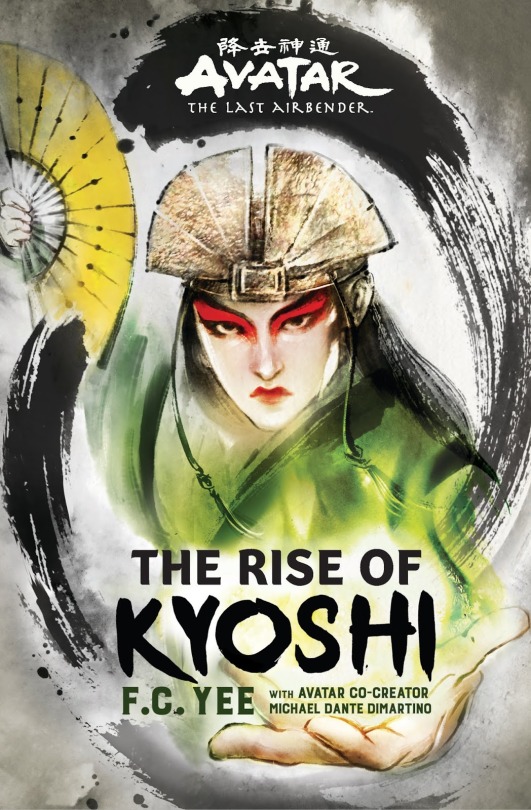
KYOSHI ERA WEEK 2024:
RULES & TAGS
To commemorate The Rise of Kyoshi's 5th anniversary, The Kyoshi Era Week 2024 will happen from July 14th to July 21st! Please, save the date and start planning!
If you want to be added to the Discord Server, send us an ask. If you'd like to submit prompts, complete this form. We are very excited to see what you'll come up with!
When sharing your work, please tag with #KyoshiEra24 and mention @kyoshi-era-week-24. The ao3 collection is called Kyoshi_Era_Week_2024. You don't have to add your work to the collection.
What works will be accepted? Everything, as long as it adheres to the rules. This means one-shots, multi-chapters, art, moodboards, head-canons, meta-analyses or anything else you want to create.
Now let's get to the rules:
1. Be kind! Only provide constructive criticism when asked and don't hate on other people's work. This means ship and let ship, don't like don't read, no kink-shaming, etc;
2. Your work must be your own! No AI and no plagiarism!;
3. Your submission must center at least one character from the The Rise of Kyoshi or The Shadow of Kyoshi OR portray the Kuruk Era or the Kyoshi Era;
4. Please add ALT text to any image submissions;
5. Sexual content must happen between consenting adults. Submissions containing ped*philia or non-con will not be shared. Works that discuss these themes or can be considered dub-con will be accepted as long as appropriately tagged.
6. Submissions containing racist, ableist, sexist, queerphobic or any other hate content will not be shared. Works that explore hate as a theme will be accepted as long as appropriately tagged.
7. Tag your work! And use Tumblr's community labels if needed. Click here to see which tw/cw tags have been submitted and please include any other tags you consider relevant to your work.
Do you want to be a mod? Do you need a tw/cw tag? Please send us an ask and we'll answer privately.
Thank you for participating and enjoy the event!
#KyoshiEra24#fan event#avatar the last airbender#avatar: the last airbender#the rise of kyoshi#the shadow of kyoshi#kyoshi novels#chronicles of the avatar#atla#tlok#trok#tsok#kyoshi#avatar kyoshi#yun#avatar yun#kuruk avatar kuruk#f.c. yee#fanfic#fanart#fanwork: fanfic
191 notes
·
View notes
Text
Rangi and Yun, glaring at Kyoshi: why didn’t you tell us you could be the Avatar?
Kyoshi, smiling: because I wanted us to fail. OBVIOUSLY I DIDN’T KNOW-
#Like this woman was just trying to keep the house clean#rangi x kyoshi#the shadow of kyoshi#kyoshi x rangi#shadow of kyoshi#kyoshi#kyoshi novels#rise of kyoshi#the rise of kyoshi#rangi avatar#rangi sei'naka#rangshi#rangi#avatar kyoshi#avatar yun
231 notes
·
View notes